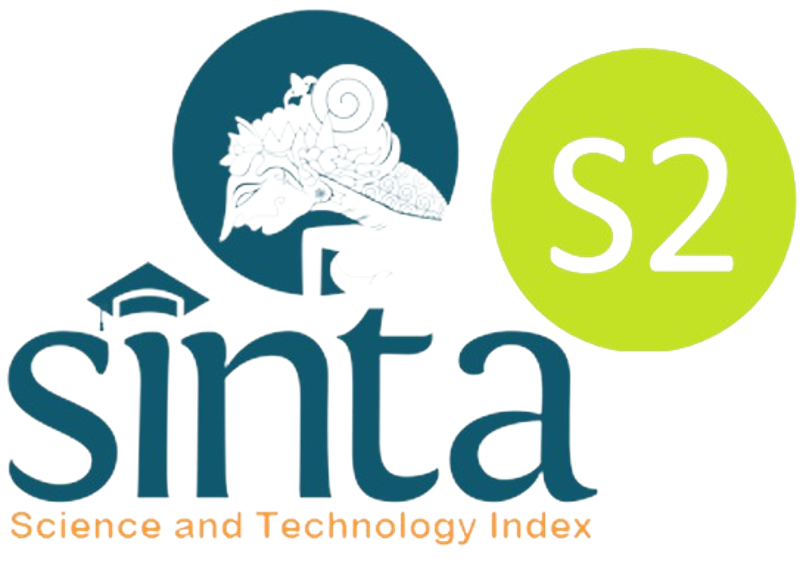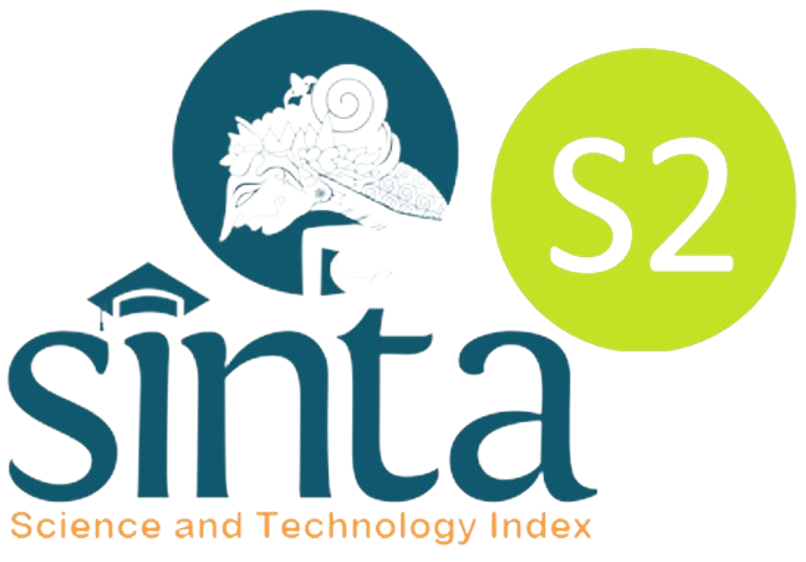THE DEVELOPMENT OF STEM (SCIENCE, TECHNOLOGY, ENGINEERING AND MATHEMATICS) BASED INQUIRY LEARNING PACKAGES TO TRAIN STUDENTS CRITICAL THINKING SKILL
DOI:
https://doi.org/10.26740/jpps.v10n2.p1949-1959Keywords:
Learning packages, STEM based inquiry, critical thinking skillAbstract
This study aimed to develop STEM based inquiry learning packages on simple machines topics to train students critical thinking skill. The type of study is Research and Development (R&D) with 4D development model, which consists of defining, designing, developing and disseminating. Learning packages included syllabus, lesson plans, worksheets, handouts and tests of students critical thinking skill. The research subjects were 28 students of grade VIII in SMPN 1 Pamekasan who were obtained by purposive sampling technique. This research based on validity and practicy. Data were collected using validation sheets, teacher activity observation sheets and student activity observation sheets. The validity data was obtained based on the results of the mode assessment done by 3 validators by validation sheet. Descriptive data were analyzed quantitatively. The results of the 3 validators assessment obtained 4 for mode value which was very valid, and the average of reliabelity Cronbachs Alpha was 0,848 in the reliable category. The result of implementation learning is 92% and student activity is 88% with very good category. This showed that the development of STEM based inquiry learning packages was categorized as valid and reliable for use based validity and practicy.
Downloads
References
Baharin, N., Kamarudin, N., & Manaf, U. K. A. (2018). Integrating STEM Education Approach in Enhancing Higher Order Thinking Skills. International Journal of Academic Research in Business and Social Sciences, 8(7), 810-821
Basuki, I., & Hariyanto. (2014). Asesemen pembelajaran. Bandung: PT. Remaja Rosdakarya.
Becker, K. & Kyungsuk, P. (2011). Effects Of Integrative Approaches Among Science, Technology, Engineering, and Mathematics (STEM) Subjects on Students' Learning, a Preliminary Metaanalysis. Journal of STEM Education, Innovations & Research, 12(6), 23-37
Beers, S. (2011). 21st Century Skills. Preparing Students For Their Future. Retrieved from: https://cosee.umaine.edu/files/coseeos/21st_century_skills.pdf
Borich, G. D. & Ong A. (2006). Teaching Strategies That Promote Thinking Models and Curriculum Approaches. Singapore: The McGraw-Hill Companies, Inc.
Brown R., Brown J, Reardon K., & Merrill, C. (2011). Understanding STEM Current Perceptions. Technology & Engineering Teacher, 70(6), 5-9
Ciolan, L., & Ciolan, L. E. (2014). Two Perspectives, Same Reality? How Authentic is Learning for Students and for Their Teachers. Procedia - Social and Behavioural Sciences, 142, 24-28
Drake, J. R. (2012). A critical analysis of active learn-
ing and an alternative pedagogical framework
for introductory information systems courses.
Journal of Information Technology Education, 11,
39-52.
Drake, J. R. (2012). A Critical Analysis of Active Learning and an Alternative Pedagogical Framework for Introductory Information Systems Courses. Journal of Information Technology Education, 11, 39-52
Erman, E. (2017). Factors Contributing to Students' Misconception in Learning Covalent Bonds. Journal of Research in Science Teaching, 54(4), 520-537
Erman, Wasis, Susantini E. & Azizah U. (2018). Scientific Thingking Skills: Why Junior High School Science Teachers Cannot Use Discovery and Inquiry Models in Classrom. International Conference on Science and Technology, 1, 201-204
Erman, E., Liliasari L., Ramdani, M & Wachidah, N. (2020). Addressing Macroscopic Issues: Helping Student Form Associations Between Biochemistry and Sports and Aiding Their Scientific Literacy. International Journal of Science and Mathematics, 18(5), 831853
Ghaemi, F. & Mirsaeed S.J.G. (2017). The Impact of Inquiry-based Learning Approach on Critical Thinking Skill of EFL Students. EFL Journal, 2(2), 89-102
Gnagey, J. 2016. The Impact of Inclusive STEM High Schools on Student Achievement. AERA 2(2), 121
Hernandez, P. R., Bodin, R., Elliott, J. W., Ibrahim, B., Rambo, H. K. E., Chen, T. W., & Miranda, M. A. (2014). Connecting The STEM Dots, Measuring The Effect of an Integrated Engineering Design Intervention. International Journal ofTechnology and Design Education, 24(1),107120
Holmlund, T. D., Lesseig K. & Slavit D. (2018). Making Sense of œ STEM Education in K-12 Contexts. International Journal of STEM Education, 5(32), 1-12
Ibrahim, M., & Wahyusukartiningsih. 2014. Model Pembelajaran Inovatif melalui Pemaknaan. Surabaya: Unesa University Press
Kennedy, T. J & Odell M. R.L. (2014). Engaging Students in STEM Education. Science Education International, 25(3), 246-258
Khusniati, M. (2012). Pendidikan Karakter Melalui
Pembelajaran IPA. Jurnal Pendidikan IPA Indo-
nesia, 1(2), 204-210.
Khusniati, M. (2012). Pendidikan Karakter Melalui Pembelajaran IPA. Jurnal Pendidikan IPA Indonesia, 1(2), 204-210
Khusniati, M. (2012). Pendidikan Karakter Melalui
Pembelajaran IPA. Jurnal Pendidikan IPA Indo-
nesia, 1(2), 204-210.
Kurniawan, D. (2014). Pembelajaran Terpadu Tematik (Teori, Praktik dan Penilaian). Bandung: Alfabeta.
LaForce, M., Noble, E., King, H., Century, J., Blackwell, C., Holt, S., Ibrahim, A., & Loo, S. (2016). The eight essential elements of inclusive STEM high schools. International Journal of STEM Education, 3(21), 1-11
Lee, D., Huh, D., & Reigeluth, C.M. (2015). Collaboration, Intragroup Conflict, and Social Skills in Project-Based Learning. International Journal of the Learning Sciences, 43(5), 561-590
Maulucci, M. S. R., Brown, B. A., Grey, S. T., & Sullivan, S. (2014). Urban Middle School Students Reflections on Authentic Science Inquiry. Journal of Research in Science Teaching, 51(9), 1119-1149
Ostler, Elliot. (2012). 21st Century STEM Education: A Tactical Model for Long-Range Success. International Journal of Allied Science and Technology, 2(1), 28-33
Pradana, D., Nur, M., & Suprapto N. (2020). Improving Critical Thinking Skill of Junior High School Students Through Science Process Skills Based Learning. Jurnal Penelitian Pendidikan IPA, 6(2), 166-172
Prastowo, A. (2015). Panduan Kreatif Membuat Bahan Ajar Inovatif. Yogyakarta: Diva Press Yoga.
Ramnarain, U. & Mupira, P. (2018). The Effect of Inquiry Based Learning on The Achievement Goal-orientation of Grade 10 Physical Sciences Learnes at Township Schools in South Africa. Journal of Research in Science Teaching, 55(6), 810-825
Ratumanan, G.T & Laurens. (2011). Evaluasi Hasil Belajar pada Tingkat Satuan Pendidikan. Surabaya: UNESA University Press.
Reeve, J. (2013). How Students Create Motivationally Supportive Learning Environments for Themselves: The Concept of Agentic Engagement. Journal of Educational Psychology, 105(3), 579-595
Sanders, M., Hyuksoo. K., Kyungsuk, P. & Hyonyong, L. (2011). Integrative STEM (Science, Technology, Engineering, and Mathematics) Education: Contemporary Trends and Issues. Secondary Education, 59(3), 729-762
Silin Y. & David K. (2017). A Study of Students Attitudes towards Using ICT in a Social Constructivist Environment. Australasian Journal of Educational Technology, 33(5), 5062
Slavin, R. E. (2011). Psikologi Pendidikan Teori dan Praktik Jilid 1. Jakarta: PT. Indeks.
Sujeewa, A., Polgampala, V., Shen, H. & Huang F. (2017). STEM Teacher Education and Professional Development and Training: Challenges and Trends American. Journal of Applied Psychology, 6(5), 93-97
Thibaut, L., Stijn, C., & Haydee, D. L. (2018). Intregated STEM Education: A Systematic Review of Instructional Practices in Secondary Education. European Journal of STEM Education, 3(1), 1-12
Tomkin J. H., Beilstein S. O., Morphew J. W. & Herman G. L. (2019). Evidence that communities of practice are associated with active learning in large STEM lectures. Springer Open. International Journal of STEM Education, 6(1),1-15
Tunkham P., Donpudsa S. & Dornbundit P. (2016). Development of STEM Activities in Chemistry on œProtein to Enhance 21st Century Learning Skills for Senior High School Students. Journal of Social Sciences, Humanities, and Arts. 15(3), 217-234
Trianto. (2015). Model Pembelajaran Terpadu dalam Teori dan Praktik. Jakarta: Prestasi Pustaka.
Vidergor, H. E., & Gottlieb, M. (2015). High Order Thinking, Problem Based and Project Based Learning in Blended Learning Environments. In Applied Practice for Educators of Gifted and Able Learners, 217232
Viorel, D. & Viorel M. 2015. Scientific Literacy in School. Journal of Social and Behavioral Sciences, 209, 167-172
Downloads
Published
How to Cite
Issue
Section
License
Copyright (c) 2021 JPPS (Jurnal Penelitian Pendidikan Sains)

This work is licensed under a Creative Commons Attribution-NonCommercial 4.0 International License.
 Abstract views: 1359
,
Abstract views: 1359
, PDF Downloads: 868
PDF Downloads: 868












